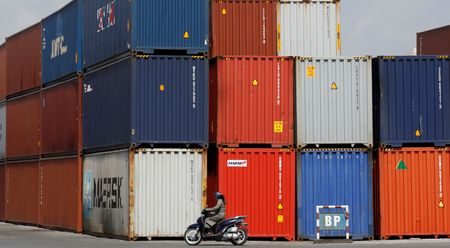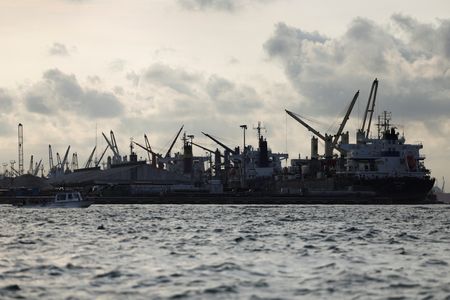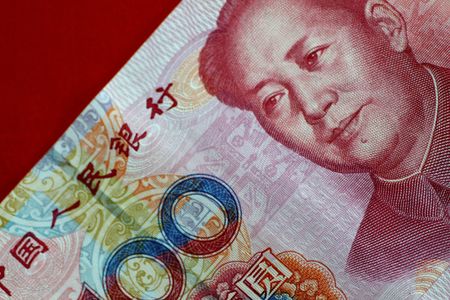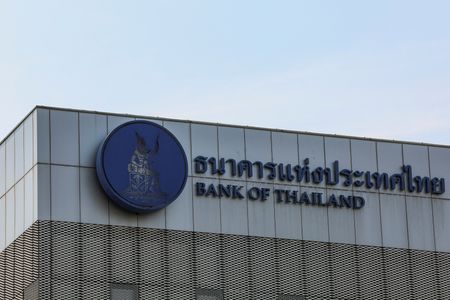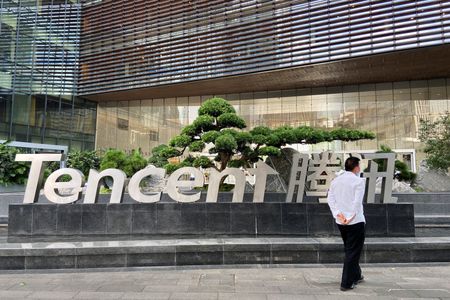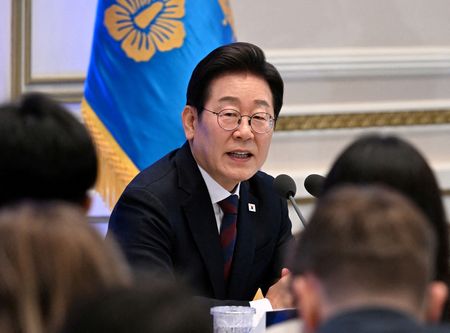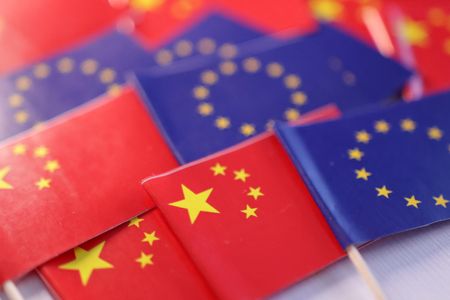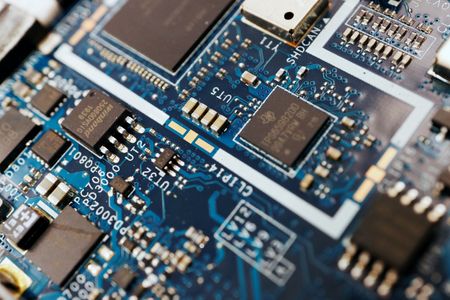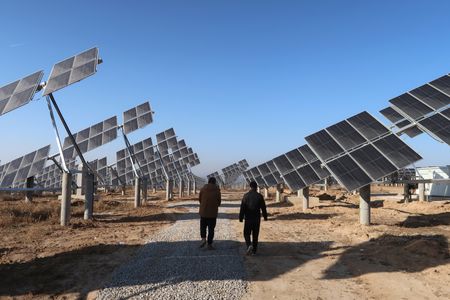HANOI (Reuters) -U.S. President Donald Trump’s looming global tariffs could hit virtually all of Vietnam’s goods exports to its top market, worth more than $142 billion last year, or about 30% of the Southeast Asian nation’s GDP.
Vietnam benefited from the trade war Trump launched against China in his first term, but Vietnamese officials and foreign companies are uncertain how the nation will fare under new levies Trump says will take effect on Wednesday. Vietnam has one of the largest surpluses with the U.S., worth $123.5 billion, and meets several criteria for Trump’s reciprocal tariffs.
Below are some measures Vietnamese officials have flagged, are considering or that might help avoid Trump’s tariffs:
DUTIES, NON-TARIFF BARRIERS
Vietnam imposes higher tariffs than the U.S. on average and charges value-added tax on goods. Still, some economists calculate that Vietnam’s effective bilateral tariff rates are lower.
It is not clear which rates the Trump administration is considering to determine possible reciprocal tariffs, but average duties have so far been Washington’s benchmark.
Vietnam said this month it would cut duties on multiple imports, including liquefied natural gas and cars, and has repeatedly said it would reduce non-tariff barriers.
The Office of the United States Trade Representative in its latest report in 2024 produced a long list of non-tariff hurdles applied by Vietnam, including import bans, complex registration requirements, and technical and sanitary barriers.
DEFENCE, STARLINK
Hanoi has been in talks with U.S. defence firms for the possible purchase of security equipment, with negotiations at an advanced stage for Lockheed Martin C-130 Hercules military transport planes, according to officials with knowledge of the matter.
The Vietnamese government issued a decision this month allowing Trump’s ally Elon Musk’s SpaceX to launch its Starlink satellite internet service on a trial basis in the country while retaining full control of its subsidiary, circumventing strict limits on foreign ownership.
PLANES
Vietnamese budget carrier VietJet agreed to buy 200 Boeing 737 MAX jets in a multi-billion-dollar deal first signed in 2016 and revised afterwards.
No planes have been delivered, although the company had said it expected to receive the first jets last year. It has also shown an interest in expanding the deal without detailing how.
Flag carrier Vietnam Airlines has an agreement for the possible purchase of 50 Boeing 737 Max jets.
ENERGY IMPORTS
Vietnamese officials have repeatedly discussed with U.S counterparts possible purchases of U.S. liquefied natural gas for Vietnam’s fledgling LNG industry, and in March signed non-binding deals for the import of energy equipment and fuel.
The country, planning to relaunch its nuclear power programme, is looking for suppliers of nuclear energy technology.
AGRICULTURE GOODS
Vietnam is open to importing more U.S. farm products, the trade minister has said. A rise in agriculture imports, however, would not significantly reduce the bilateral imbalance as the nation imported just $3.4 billion of U.S. farm products last year.
TRANSHIPMENT, STEEL
Vietnam has long been suspected of being a transhipment hub for Chinese goods to the U.S., given the huge volumes of intermediate goods it imports from China. For some products such as solar panels, it has already been sanctioned.
In February Vietnam decided to impose temporary anti-dumping duties on Chinese steel products. During a visit in March to Washington, the trade minister pledged to combat fraudulent transhipment schemes.
DEPORTATIONS
Vietnam is issuing travel documents for Vietnamese nationals detained in the U.S. for their repatriation, a U.S.-based lawyer said, noting Hanoi had agreed to handle more requests and more quickly after U.S. threats of tariffs and visa sanctions. It has generally been reluctant to allow deportations from the U.S.
MONETARY POLICY
Trump ended his first term in the White House with the Treasury Department declaring Vietnam a currency manipulator.
The country is now on the U.S. watch list for possible manipulation. In recent months, the central bank has allowed the Vietnamese dong to weaken against the dollar, and the country’s bold growth targets may signal the intention to tolerate an even weaker currency, said Adam Samdin at Oxford Economics.
The exchange rate has, however, remained within the allowed flexibility and the central bank has said it would monitor and adjust to Trump’s policies.
GOLF DIPLOMACY
The Trump Organization has agreed to develop a $1.5 billion golf club in Vietnam, its local partner said in October. The consortium plans to invest in up to four projects in the country, a spokesman said.
(Reporting by Francesco Guarascio; Editing by Lincoln Feast and William Mallard)

